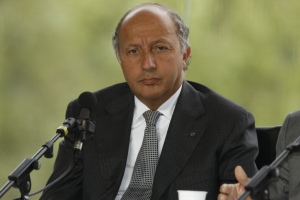As ASEAN continues its efforts at greater integration, various third party states and IGOs will be left behind if they fail to increase collaboration.
When the French Foreign Minister delivered his address on 2 August 2013 to the ASEAN Secretariat (ASEC) in Jakarta, he began his keynote speech by stating that his visit is the first among French ministers. The speech was set against the introduction of the ASEAN Economic Community (AEC) – liberalisation and harmonisation in several areas of the ASEAN economies – in 2015. One would naturally expect Laurent Fabius to update the public on the state of Franco-ASEAN relationships and to explain how France, and perhaps the EU, would approach the new economic convergence in Southeast Asia.
However, throughout Fabius’ speech, ASEAN was largely given a secondary status vis-à-vis ASEAN Members States (AMS). Besides lauding ASEAN as a “stabilising force” and proposing the completion of the Code of Conduct between AMS and third-party states, Fabius’ speech focused mainly on relationships between France and AMS, in particular Indonesia. Rather than addressing France’s trade partnership with ASEAN in its totality, Fabius described Indonesia, Singapore, Malaysia, the Philippines, Thailand and Vietnam as France’s “grandes partenaires”.
When questioned about advice that France as a member of the EU could give to ASEAN on integration, Fabius seemed uninterested and only offered vague recommendations, such as the need for bold and innovative leaders. These statements gave a strong impression that Fabius, and possibly the French diplomatic corps at ASEAN, may not have recognised the changes that are unfolding within ASEAN.
When a member of Mouvement des Entreprises de France – the largest employer union in France – labelled the question on integration advice as “pertinent” and expressed a strong interest in the future of ASEAN political integration and economic convergence, it seems there is a significant disconnect in third-party states between the views of political leaders and those of the business community.
While it is true that ASEAN is still a regional organisation operating along intergovernmental lines, in which real power lies with AMS, ASEAN has in fact evolved after the introduction of the Charter and will change further as the AEC comes into force. The AEC shows an increasing willingness among AMS to negotiate and implement region-wide policies that may have once been considered to be under the sole jurisdiction of sovereign governments, such as the lowering of behind-the-border barriers. While such moves may not be perceived as momentous by political actors of third-party states when compared to the supranational power of the European Commission, they are significant to businesses. What businesses seek is for political leaders of third-party states to clarify and streamline the confusing processes brought about by the AEC on their behalf.
Together with recent comments by the Indonesian Foreign Minister, Dr. Marty Natalegawa, on further community-building through the extension of the Treaty of Amity and Cooperation (TAC) to third-party states and creation of a regional dispute mechanism, leaders of third-party states should cast aside their old prejudices towards ASEAN. The regional organisation is evolving – slowly and silently. Third-party states will do well to heed the new view on ASEAN.











